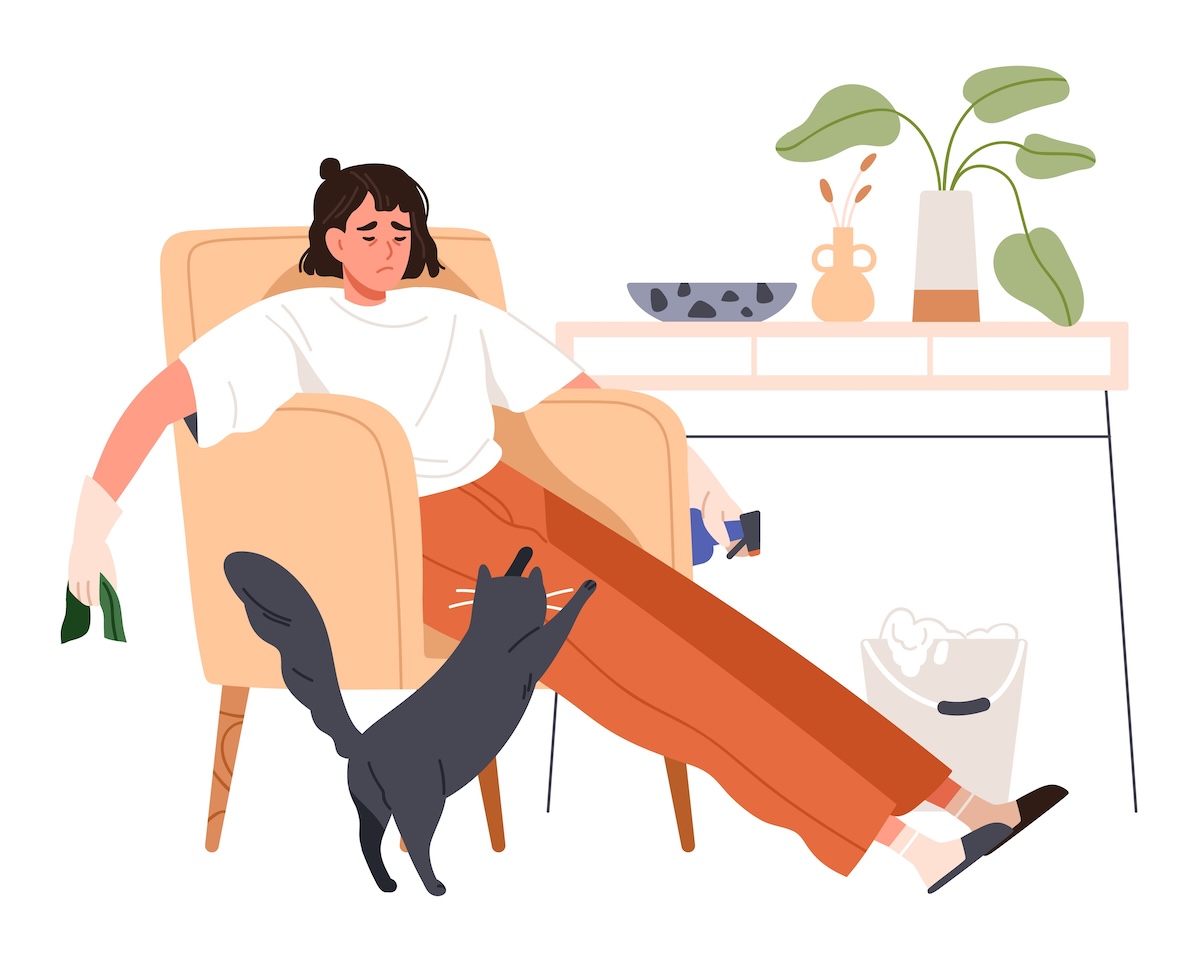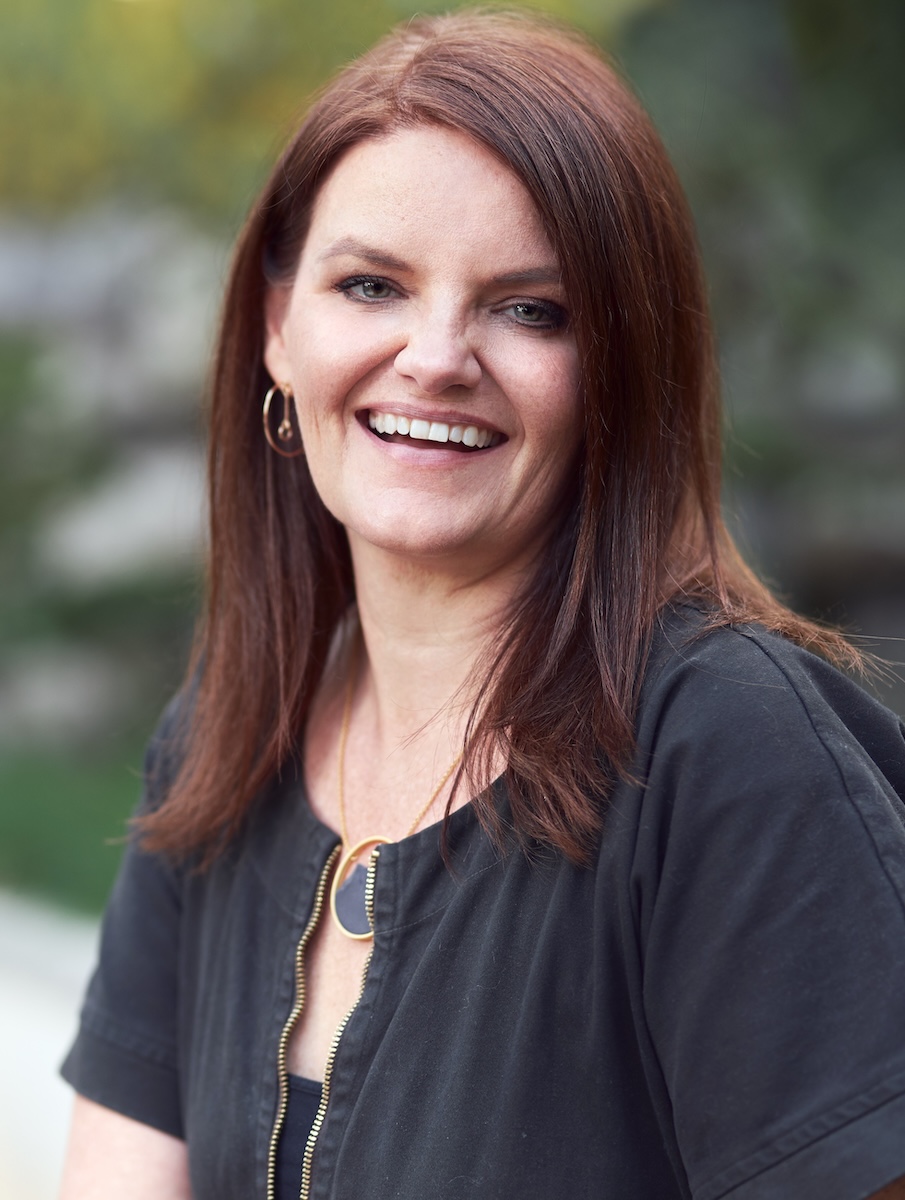Latest in Lifestyle Redesign®
March 2024
Did you know?
March 10-16, 2024 was Sleep Awareness Week! During this time, the National Sleep Foundation shares valuable information on how people have been sleeping the past year, while offering research-based advice on the benefits of quality sleep and how it affects health and well-being.
This month’s Latest in Lifestyle Redesign newsletter will highlight some sleep-related content in honor of Sleep Awareness Week earlier this month.
LR IRL — Lifestyle Redesign in Real Life
Getting to the Sleep Gate

Last Spring, Kate reached a breaking point and could no longer push through her days with brain fog and low energy; her quality of life and work ethic were too important to her to continue in this way. For four months, Kate had been balancing her roles as a care partner and full-time nurse with a per diem job on the side, when she finally sought support from her family medicine provider to address what she believed to be insomnia. She was referred to the USC Occupational Therapy Faculty Practice (OTFP) to address her sleep deficits using a Lifestyle Redesign approach when she met her OT, Rebecca Cunningham, OTD, OTR/L, LRC.
During their first visit together, Kate walked Rebecca through her daily and weekly routines, with a special emphasis on her nighttime routines. While Kate came to believe that her sleep deficits were a result of insomnia, Rebecca began to form a different hypothesis as she gained a clearer understanding of what Kate’s evenings actually looked like. For about half of the week, every week for the last four months, Kate was spending the night at a loved one’s home as a part of her role as a care partner. On these days, Kate would engage in a sleep preparation routine while at her own home, then transition to her loved one’s home, resulting in being unable to fall asleep until after midnight- this was less than ideal for a 7am shift start.
Within their first session together, Rebecca was able to shine a light on this pattern and educate Kate on why this routine may be negatively impacting her sleep. Kate came to understand that, while she actually had reliable sleep hygiene strategies, she wasn’t taking advantage of her sleep gate, the window of time in which one’s body will allow them to fall asleep. For Kate, this ideal time was around 10pm when she was either actively assisting her loved one in their sleep routine, or engaging in sleep procrastination activities (e.g., scrolling on her phone, watching TV) to wind down after helping her relative. She was essentially pushing through her first wave of sleepiness and had to wait until another sleep gate window opened. This was the first time that Kate saw the connection between her evening activities, sleep environment, and sleep quality.
By their second visit, Kate and Rebecca began problem-solving through modifications Kate could reasonably make to optimize her sleep routines, especially with regards to her varying sleep environments. Rebecca led her in exploring whether Kate was the only care partner that could assist her loved one in the evenings and, to Rebecca’s surprise, Kate was quick to acknowledge that there were other family members who could reasonably step in, especially if Kate would still be involved on the weekends. Kate was skilled at self-advocacy, meaning she required minimal coaching or rehearsing (common activities within a Lifestyle Redesign treatment session) but rather, needed Rebecca’s support in thinking through the logistics of who and how to ask for support from family. Ultimately, Kate was successful in advocating for herself and significantly changed her weekday evening routines, allowing her to reincorporate physical activity back into her lifestyle.
By the fourth session, eight weeks after the first, Kate shared that she felt confident in her ability to carry on without Rebecca’s support. She felt more knowledgeable about how her sleep routines impact her overall wellbeing and had established a reliable, effective weekday evening routine that allowed Kate to take advantage of her sleep gate and uphold her roles as care partner and nurse to standards that she could be proud of.
When asked to reflect on her experience with Kate, Rebecca shared, “This was a reminder that some patients only need short plans of care and it’s important to recognize the signs of readiness. We as OTs don’t have to fix all of the things; short, powerful courses of treatment can have a radiating effect. This case serves as a reminder that Lifestyle Redesign can be effective in a short period of time and used as a preventative approach to optimize well-being before developing chronic conditions.”
Research Spotlight
Sleep Timing, Sleep Consistency, and Health in Adults: A Systematic Review

Sleep is an essential occupation that undeniably affects one’s health, though there are various sleep factors that may contribute to resulting health outcomes. At the time this article was published, there was more information about the importance of sleep duration and sleep quality for health than for any other sleep factor. A research team led by Dr. Jean-Philippe Chaput explored the associations between sleep timing (e.g., wake-up/bedtime), sleep consistency (e.g., intra-individual variability in sleep duration), and health outcomes in adults.
The systematic review identified 41 relevant articles that utilized a mixture of subjective and objective measures for sleep timing, consistency, or both, and examined the articles’ outcomes in relation to 14 pre-determined health outcomes. Findings suggest that later sleep timing and greater sleep variability were generally associated with adverse health outcomes. However, because most studies reported linear associations, it was not possible to identify thresholds for suboptimal sleep timing or variability. The article describes “social jetlag” as associated with adverse health outcomes, while “weekend catch-up sleep” as associated with better health outcomes. Ultimately, earlier sleep timing and regular sleep patterns with consistent bedtimes and wake-up times are favorably associated with health outcomes.
When asked about the implications of this publication, Dr. Chaput shared, “Healthy sleep is much more than a question of quantity and quality. New research shows that when we go to bed and wake up (timing) and the day-to-day regularity in sleep patterns are critical aspects of sleep that must be considered given their impact on overall health.” In addition to sleep, Chaput and his team have also published a special issue on the timing of movement behaviors and their impact on health.
Fatigue as an Understudied Barrier to Participation in Life Roles
Fatigue is an invisible, burdensome symptom of a multitude of acute and chronic conditions that impacts all aspects of daily life, however, is difficult to define and characterize. Occupational therapy has historically been at the forefront of fatigue management and since the COVID-19 pandemic, there has been a rise in diagnoses of “long COVID”, contributing to a greater need for advancing occupational therapists’ understanding and management of fatigue.

The American Occupational Therapy Foundation (AOTF) invited participants of various disciplines with expertise or research experience with fatigue to a Planning Grant Collective (PGC) workshop in 2022. This three-day workshop aimed to generate new research ideas that expand the understanding of fatigue and fatigue management.
By the conclusion of this workshop, four main research initiatives emerged:
- Implementation Science: Translating Knowledge to Practice
- Treatment Taxonomy
- Trial Design and Comparative Effectiveness
- Phenotyping
The hope is that these research initiatives “will facilitate collaborative research to advance knowledge and evidence-based interventions to improve participation and quality of life among people who live with fatigue.”
Upcoming Opportunities
Leveraging Lifestyle Medicine for Occupational Therapy’s Expansion of Lifestyle-Based Services
Webinar | Thursday, April 25, 2024

Dr. Christy Billock
In this 1-hour webinar, Dr. Christy Billock will lead participants through an exploration of the growing field of lifestyle medicine and its potential to help expand the reach and nature of occupational therapy’s lifestyle-based services. Attendees will learn about the history, key pillars, and interdisciplinary nature of lifestyle medicine as foundational for future collaboration and advocacy. The presentation will consider how lifestyle medicine can align with and complement the scope of practice of occupational therapy, thereby paving the way for broader application of lifestyle-based services and coordinated client care.
Date/Time: Thursday, April 25th | 12pm PST
Location: Zoom
Cost: This webinar is offered at no cost. Registration is required to join the webinar.
CEUs: 1 contact hour (0.1 CEU)
Empowering Change: A Training for Occupational Therapy Practitioners in Motivational Interviewing
Interactive Course | May 3, 2024 through May 5, 2024

Motivational interviewing (MI) is an effective approach to overcoming the ambivalence that keeps many people from making desired changes in their lives. Occupational therapy practitioners and other healthcare professionals will find this method of therapeutic communication to be an effective tool to both understand the nature of behavior change and to develop the skills to identify readiness for change; and, ultimately, to facilitate the process.
This is a live, interactive course in which participants will apply MI principles through role-playing. This is designed to be a supportive learning environment where participants will be actively engaged in practicing MI skills. While this course is designed to be applied to OT practice, the content covered can be applicable to any population; therefore, all disciplines are welcome.
This is a 12-hour course held across 3 days (4 hours per day). Participants are expected to fully participate for the entire course.
Dates/Times:
- Friday, May 3, 2024, 1–5pm PST
- Saturday, May 4, 2024, 8am–12pm PST
- Sunday, May 5, 2024, 8am–12pm PST
Location: Zoom
Cost:
- Standard: US$250
- AOTA Members and USC Chan Alumni: $225
CEUs: 12 contact hours (1.2 CEU)
Note: This course satisfies the 12-hour MI training requirement for obtaining Lifestyle Redesign Certification.
New On-Demand Learning Opportunity

The Lifestyle Redesign Webinar Series live events are recorded and made available for on-demand viewing shortly thereafter, for a nominal fee. Upon purchasing access to the on-demand webinar, there is a 30-day window to view the webinar recording and submit post-webinar surveys to receive continuing education credit.
The latest webinar, held on February 22, 2024, is now available for on-demand viewing!
On-Demand Webinar Title
Optimizing Occupations, Habits, and Routines for Health and Well-being: An Overview of the Lifestyle Redesign Intervention Framework
Cost:
- Standard: $30
- AOTA Members & USC Chan Alumni: $27
CEUs: 1 contact hour (0.1 CEU)
For more information about this on-demand webinar or general information about accessing on-demand webinars and claiming CEU credit, please visit the On-Demand Learning page.
Certification Section
Overview of Lifestyle Redesign Certification Requirements
A Lifestyle Redesign Certification (LRC) indicates that an occupational therapy practitioner (OTP) has demonstrated competence in applying the Lifestyle Redesign intervention framework in their practice (inclusive of direct patient care, consultation, research and education activities).
OTPs pursuing a LRC will fulfill the following requirements:
- Active OT Licensure
- Education: Completed Didactic Coursework
- Experience: Mentored and Independent Practice Hours
- Evaluation: Successfully completed the Lifestyle Redesign certification exam
- Maintaining Certification
For more information about LRC requirements, how to fulfill them, and FAQs, please visit the updated Certification page.
Course Series Corner
Prospective 2024-2025 Timeline
The Foundations of Lifestyle Redesign Course Series is launching soon! Below is the anticipated timeline for the first cohort seeking to pursue Lifestyle Redesign Certification. Note that each course builds on the last, therefore, these courses are to be taken in sequential order. All courses are offered remotely and are accessible internationally.
- May 2024 — Registration opens for Core Course 1: Foundations of Lifestyle Redesign
- September 2024 — Core Course 1 begins
- November 2024 — Core Course 2: Lifestyle Redesign Intervention Delivery begins
- December 2024 — Holiday Break
- January 2025 — Core Course 2 resumes
- Spring 2025 — Core Course 3: Program Development, Implementation, and Evaluation
- Summer 2025
- Mentored Practicum in Lifestyle Redesign (OT 638)
- Special Topics Courses
Details about how to register coming soon. For more information about the Course Series, such as course formats, number of hours per course, and course costs, please visit the Course Series page.







